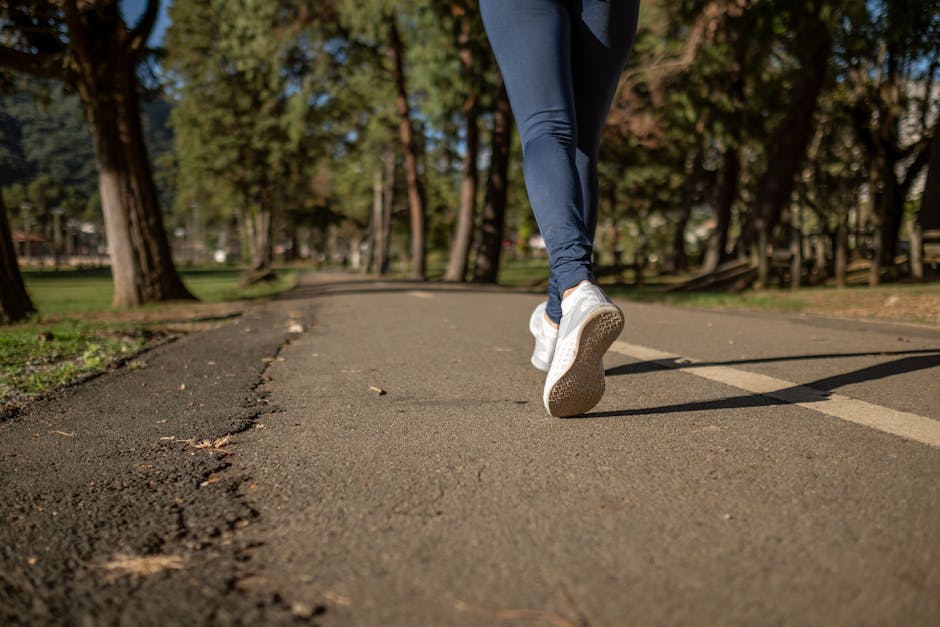The Health Benefits of Walking in Nature 🌿
In our fast-paced world, it’s easy to get caught up in the hustle and bustle of daily life. However, taking a moment to step outside and immerse yourself in nature can do wonders for your health. Walking in nature is more than just a leisurely activity; it’s a powerful tool for boosting both physical and mental well-being.
Table of Contents
1. Physical Benefits of Walking in Nature
2. Mental Health Boost
3. Deepening Your Connection to Nature
4. Conclusion
5. FAQ
Physical Benefits of Walking in Nature 🌳
Walking is one of the simplest forms of exercise, yet it offers a multitude of health benefits. When you take your walk outside into a natural setting, the advantages multiply:
1. Improved Cardiovascular Health: Consistent walking helps lower blood pressure, improve circulation, and reduce the risk of heart disease. Nature walks often involve varied terrain, which can enhance these benefits by providing a gentle workout for your heart.
2. Enhanced Joint Health: Walking on natural surfaces like grass or dirt paths is easier on your joints compared to the hard, unforgiving surfaces of urban environments. This can help reduce pain and stiffness, particularly in the knees and hips.
3. Better Immune Function: Spending time in nature has been linked to improved immune function. The fresh air and exposure to sunlight help your body produce vitamin D, which plays a crucial role in maintaining a healthy immune system.
Mental Health Boost 🌼
Walking in nature isn’t just good for your body; it’s a balm for your mind as well. Here’s how it can enhance your mental health:
1. Stress Reduction: Being in nature has a calming effect on the mind. The sights, sounds, and smells of the outdoors can help reduce stress and promote relaxation. Who can resist the soothing sound of birdsong or the gentle rustle of leaves?
2. Enhanced Mood and Creativity: Nature walks have been shown to boost mood and creativity. The change of scenery can help break mental blocks and inspire new ideas. Next time you’re stuck on a problem, try taking a stroll in the park!
3. Better Sleep Quality: Regular exposure to natural light during the day can help regulate your sleep-wake cycle, leading to better sleep at night. Plus, the physical activity involved in walking can tire you out just enough to make falling asleep easier.
Deepening Your Connection to Nature 🌍
Walking in nature is a wonderful opportunity to develop a deeper connection with the world around you. Here’s how you can make the most of your time outdoors:
1. Practice Mindfulness: As you walk, focus on the details of your surroundings. Notice the colors of the leaves, the texture of the bark, or the patterns of light and shadow. This mindfulness practice can enhance your appreciation for the natural world.
2. Disconnect to Reconnect: Leave your phone behind, or at least put it on silent. Use this time to disconnect from digital distractions and reconnect with yourself and nature.
3. Explore New Trails: Variety is the spice of life! Try exploring different trails and parks in your area to discover new scenery and experiences. Each new path might offer a unique perspective on your surroundings.
Conclusion 🌟
Walking in nature is a simple yet effective way to improve your physical health, boost your mental well-being, and deepen your connection to the natural world. So, lace up your walking shoes, step outside, and let the healing power of nature work its magic.
FAQ 🤔
Q1: How often should I walk in nature to see benefits?
A: Walking in nature for just 30 minutes a few times a week can yield significant health benefits. The key is consistency, so find a routine that works for you.
Q2: Can walking in nature help with anxiety?
A: Yes, spending time in nature has been shown to reduce symptoms of anxiety and promote relaxation. The natural environment can provide a peaceful setting for mindful walking and reflection.
Q3: Is walking in nature better than walking on a treadmill?
A: While both have their benefits, walking in nature offers additional advantages like fresh air, sunlight, and the mental health benefits of being outdoors. Plus, it can be more engaging and enjoyable!
Q4: What should I bring with me on a nature walk?
A: It’s a good idea to bring water, comfortable walking shoes, a hat or sunscreen for sun protection, and perhaps a camera or notebook to capture your experiences.
Q5: Are there any precautions I should take when walking in nature?
A: Always stay on marked trails, be mindful of local wildlife, and let someone know your route and expected return time. It’s also wise to check the weather forecast and dress appropriately.



